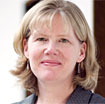Commentary on Luke 14:1, 7-14
Giving great honor to those who are distinguished. Ignoring those who are ordinary or “defective.” Seating charts that are set up to emphasize the high status of some and the lower status of others.
We would like to think that these social issues are descriptions of the first-century world of the New Testament and not problems in our own church settings, especially churches rooted in Western, democratic society. Yet social distinctions do matter far too often in our Christian communities, as those who experience less privilege would easily attest. What was quite explicit in the ancient world may express itself in more implicit fashion in our contexts.
In Luke 14:1, 7-14, the social matrix of first-century life is on display, and we hear Jesus speak into this matrix both with communal wisdom and unexpected, even astonishing, advice. We hear the setting for the story in 14:1. It is the Sabbath, and Jesus is invited to a meal at the house of a leading Pharisee. After an interlude in which Luke narrates Jesus healing a man and defending that Sabbath healing, Luke focuses on the meal scene, a setting he strategically employs in his gospel (e.g., 5:29; 7:36; 11:37; see also 7:34; 15:1-2).
At the meal, Jesus observes “how the guests chose the places of honor” (14:7). His response, according to Luke, is two-fold. First, he tells a parable. The point of the story is to discourage his listeners from seeking the most prestigious seat at the table (prōtoklisia) to avoid the humiliating situation of being displaced by someone of greater prominence (14:8). Instead, they are to take the lowest place so that they might be elevated to a more honorable seat by their host (14:10). Jesus’ summary comment to the parable is the well-known aphorism: “For all who exalt themselves will be humbled, and those who humble themselves will be exalted” (14:11).
How are we to understand this first response of Jesus to the very explicit social ranking at meals? We might note initially that such social ranking was commonplace in Greco-Roman society. In fact, meals were situations that particularly highlighted social disparities in the first-century world. There is a store of advice given about how to act at such meals. A Jewish wisdom book, Sirach, warns of being greedy and advises being deferential at such meals (Sirach 31:12-18). While this advice fits the tone of Jesus’ remarks in Luke, Jesus goes further in warning against seeking out the most honorable seats. His exhortation is to pursue humility, a concept with significant status connotations. Humility was very rarely considered a virtue in Greco-Roman moral discourse. Yet, humility is to mark the followers of Jesus, according to so much of the New Testament witness (e.g., Luke 1:48, 52; 18:14; Philippians 2:3; Colossians 3:12; James 3:13; 1 Peter 5:5).
What might be striking to contemporary readers in this first teaching of Jesus is that he does not castigate the system of honor at meals. Instead, he seems to assume it. Highest and lowest seats figure into his answer (14:10)! This may be due to his particular audience in the story, the banquet guests. Jesus’ advice addresses how to navigate the social setting into which they have been invited.
When we move to 14:12-14, however, we hear a more counter-cultural message–one that addresses the fabric of the honor and status structures of the ancient world. Jesus, without using a parable, speaks directly to his host–the one who holds a greater measure of control over the ‘rules of the game’ for this particular meal. His advice to this figure of power in the story works to undermine the very system that upholds status difference at meals. Jesus exhorts the host not to invite friends, family, or the rich to meals, since they are able to repay with a corresponding invitation. Such social reciprocity is the backbone of the patronage system endemic to the first-century world.
Instead, Jesus calls for inclusion of those who cannot return the invitation: “the poor, the crippled, the lame, and the blind” (14:13). This group of persons resonates with the Isaiah-shaped mission of Jesus from Luke 4:18, with the poor and the blind mentioned explicitly there as recipients of Jesus’ ministry. For Luke, Jesus subverts expectations that social payment and repayment should govern life in God’s kingdom community. His promise is that God will repay such hospitality at the “resurrection of the righteous” (14:14; also 14:11, since God is implied in the passive, “will be exalted”).
This kind of reversal of expectations and status is thematic in Luke (e.g., 1:52; 6:20-26; 18:14). In fact, in the very next passage, our meal story continues with Jesus reemphasizing the notion of inviting the poor, the crippled, the lame, and the blind (14:21), this time in a parable representing the eschatological banquet of God, which will include just such marginalized ones, with the “invited guest list” being left out (14:24).
What might Luke 14 have to say to us, and the churches that we lead? There is a theological truth that undergirds this passage and its very tangible social networks and exhortations: as God’s people humble themselves and seek to live by a different social system marked by radical inclusion, they can trust God to be faithful and to reward their right ways of living in that final day.
Yet, the eschatological angle should not overshadow how the text speaks powerfully to the way in which the kingdom Jesus inaugurates already subverts human social systems that so often reward the “haves” and further disadvantage the “have-nots.” As Christians presently seek to live out the counter-cultural value of inclusion for the most marginalized, their actions mirror Jesus’ own inclusive kingdom agenda to fill God’s house and offer that eschatological banquet to all (14:21-23).

August 29, 2010